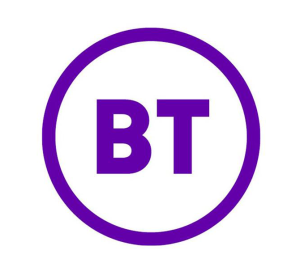Searching for a way to get WiFi as a student?
In this guide, we’ve reviewed the 5 best broadband deals for university students in the UK in 2025.
We’ve also explained how broadband deals work for students, helping you find the right plan and provider for your specific needs.
Quick comparison table
Best broadband deals for students
In this part of the article, we’ve compared some of the best broadband deals for students on the market right now, and explained how they work.
1. BT Fibre 1 Student Deal
BT’s normal broadband deals offer fast download speeds, consistent Wi-Fi, and good customer service, in our experience reviewing their fibre products.
The downside is normally their contracts are quite long, and their monthly costs can be quite high.
However, as a university student, you get access to a special set of cheaper broadband deals, which come with a 12 month contract.
BT’s student broadband deals are very reasonably priced, and often come with no upfront costs. Plus, you can get ultrafast fibre download speeds of up to 900 Mbps.
Also, unlike some other providers, BT Broadband is available nearly everywhere in the UK, so you don’t have to worry whether or not your flat or student accommodation has access to their network.
The only real downside to BT is they’re not the cheapest provider on the market. If you don’t need fast broadband, there are other providers that offer a lower monthly cost.
Pros
- Good value.
- Fast, consistent download speeds.
- Great customer service.
- Available almost everywhere.
Cons
- There are cheaper providers on the market.
2. Hyperoptic Hyperfast Student Deal
Hyperoptic operates its own independent broadband network, which is available in most British cities.
Their broadband service offers download speeds of up to 900 Mbps, with symmetrical upload speeds. This is quite rare in the UK – most providers have much slower upload speeds compared to their download speeds.
As a student, you can get a discount on Hyperoptic Broadband, and you have the choice of a 30 day, 12 month, or 24 month contract.
This provider is extremely price competitive, especially on their 50 Mbps and 150 Mbps plans, and their ultrafast deals are also relatively cheap compared to most other providers.
There is an upfront cost you have to pay to join Hyperoptic, and it can be quite large. However, they still offer great value given the low monthly fees and ultrafast average download speeds on offer.
Pros
- Fast download speeds.
- Symmetrical downloads and uploads.
- Can get a month to month contract.
- Reasonable monthly costs.
Cons
- Relatively high upfront fee.
3. Virgin Media M250 Student Deal
If you sign up with a UK university email address, Virgin Media offers a few different discounted broadband plans with fast download speeds.
The best thing about Virgin Media is the flexibility on offer. They allow you to join on a month-to-month basis, which few other providers allow you to do at the moment.
Virgin Media’s download speeds are also very good. Their M350 and M500 plans offer plenty of bandwidth, even if you’re house-sharing with four or five other people.
Virgin Media isn’t as widely available as BT. However, their coverage is quite good in major cities, meaning you should be able to get their service if you live in a 10-20 mile radius of most major universities.
It’s worth noting though, if Virgin Media hasn’t been used at your address before, they will need to send out an engineer to help get you set up.
Getting started with Virgin Media Broadband can be a bit trickier than BT, NOW Broadband, or other Openreach providers.
Also, strangely, Virgin Media does not always sell their student broadband plans throughout the entire year. If you’re not looking to buy a broadband package in the summer, these discounted plans might not be available on their website.
Pros
- Offers fast download speeds.
- Flexible monthly contracts on offer.
- Low monthly costs.
Cons
- Installation can be a bit more involved compared to other providers.
How to choose a broadband deal as a student
In this part of the article, we’ve explained some important things to know when shopping for a broadband deal as a student in the UK.
How does buying broadband work in the UK?
If you’re an international student, or you’re buying broadband for the first time, you might be wondering what the process involves.
To buy a broadband plan:
- First put your postcode in on a broadband provider’s website, to see if they service your address, and to find out what download speeds you can get. You can use our coverage checker to find out what speeds you can expect to get with different providers.
- Choose a package that works for you, and place the order. You will need to commit for a 12, 18, or 24 month contract most of the time when signing up, and you’ll need to pass a credit check. Fortunately, some providers offer 30-day or 9 month contracts, specifically for students. These are a much better choice if you only need broadband for 3-6 months or so.
- Your router will be shipped to you in the mail. You won’t have to pay any extra charges to get a router, but you will have to return it when you finish using your broadband service.
- An engineer visit might need to be booked in, if the broadband network you’re joining has never been used at your address before.
- If an engineer doesn’t need to come, you’ll need to set up the router, by plugging it into a broadband socket. All the cables and instructions you need will be included in the box.
- After this is done, your connection will go live at a time scheduled by your provider, and you’ll be able to get online.
Every broadband plan in the UK currently comes with unlimited data – you don’t need to worry about usage limits when buying a WiFi plan.
Student broadband deals and discounts explained
Some broadband providers, like Virgin Media and BT, offer special plans and discounts if you sign up with a university email address.
Typically, student broadband deals will come with a shorter contract length. You should be able to get broadband on a month to month basis, or you might get access to a 9 month or 12 month contract (rather than having to commit for 18 or 24 months).
When the contract expires, you’ll have to prove that you’re still at university to continue accessing the same student broadband plan.
Some broadband providers also offer discounts for students. As a university student, you might be able to get a lower monthly cost compared to a provider’s regular broadband deals.
Broadband contracts explained
Most broadband deals in the UK come with a minimum contract length of 12, 18, or 24 months.
During this period, you cannot leave the contract without paying an exit fee. The exit fee is normally very large, especially if there is a long time remaining on the contract.
If you don’t want to commit to a certain broadband provider for a year or more, look for a company that offers 30-day broadband deals, such as Hyperoptic.
Some broadband providers, like BT, used to offer 9 month contracts for students. However, they’ve recently stopped doing this, so your best choice if you don’t want to commit for a year is to get a 30 day contract.
Which broadband provider is best?
There are essentially two different types of broadband providers you can choose from in the UK.
- Budget broadband providers, like NOW Broadband. Relatively basic, but offer low monthly costs.
- Premium broadband providers, like BT or Virgin Media. More expensive, but offer faster download and upload speeds in most cases. They may also include other extras or freebies when you sign up, and will normally have a wider range of TV channels and other add-ons you can choose to include.
If you live alone or just with your partner, a cheaper broadband provider is a good option if you want to save money, since you won’t need much bandwidth.
However, if you’ll be sharing your internet connection with a number of other people, you’ll need fast broadband, otherwise you might find your connection slows down when others get online.
What download and upload speed do I need?
As we just touched on, getting the right download speed is quite important when buying broadband.
The more people that live at home, the faster a connection you’ll need. When multiple people get online and do data-intensive activities at the same time, like streaming 4K video, you need enough bandwidth to handle this, otherwise your broadband will slow down for everyone.
But at the same time, you don’t want to pay a lot of money for full fibre broadband if you don’t need ultrafast speeds.
To find out how much bandwidth you need, given how many people live at home, and how you use the internet, use our broadband speed needs calculator.
As a rule of thumb, 50-100 Mbps is plenty for one to two people who are regularly online. For 3-4 people, you’ll need at least 200-300 Mbps.
How to save money on broadband as a student
Apart from looking out for student discounts, and only paying for the amount of bandwidth you really need, here are some other ways to save money when buying broadband as a student
- Avoid any extras, like TV channels or phone add-ons – instead, buy these extra services separately. It’s often cheaper to get TV channels using a streaming service rather than using cable TV, since you won’t have to buy a TV box or lock into a long-term TV contract.
- Choose a longer-term contract (at least 12 months), if you can. Short-term broadband deals often have higher monthly costs and installation charges.
- Make sure to re-contract when your agreement ends. It’s common for broadband providers to massively increase your monthly cost as soon as your 12, 18, or 24 month contract expires. When this happens, make sure to enter into a new contract immediately, either by contacting your current supplier and haggling, or joining a different broadband provider.
- Consider using an alternate way of getting online, such as 4G or 5G (discussed in more detail below).
Alternative ways of getting online
If you’re struggling to afford the cost of a fibre broadband connection, there are other cheaper ways you can get online instead.
5G internet solutions like the Three 5G Hub can offer download speeds of 500 Mbps or more for as little as £20-£25 per month, which is much cheaper than a 500 Mbps fibre internet plan would cost.
There are also 4G mobile Wi-Fi devices and dongles you can use to get online, which can be purchased for even cheaper, if you don’t mind having a data limit.
Also, using 4G or 5G is often a more simple way of getting online. These types of internet technologies are easy to set up yourself, without having to wait for an engineer visit.
The downside to using these types of mobile broadband solutions is your speeds won’t be as consistent. With 4G, you can only expect average download speeds of 30 Mbps or so, which is only fast enough for a single person doing basic studying activities like reading articles, joining Zoom or Teams meetings, accessing your e-learning portal, and watching the occasional video.
Conclusion
You’ve reached the end of our student WiFi buyer’s guide.
If you’re still not sure which broadband provider to choose, leave a comment below, or DM us on X, and we’ll help out.
About the author

Tom is the founder of Broadband Savvy. He has more than five years’ experience writing broadband tutorials, reviewing routers and internet service providers, and explaining broadband-related concepts. Tom is experienced as a writer, and also produces videos for the Broadband Savvy YouTube channel.
He currently specialises in writing content for Broadband Savvy designed to help people understand broadband jargon and terminology, increase their download and upload speeds, and improve their Wi-Fi connectivity. Tom also occasionally contributes to buyer’s guides and review articles on Broadband Savvy, utilising his knowledge of the broadband market in the UK.
When he’s not writing about broadband, you’ll find him walking his dog (Rex) or playing agar.io.














